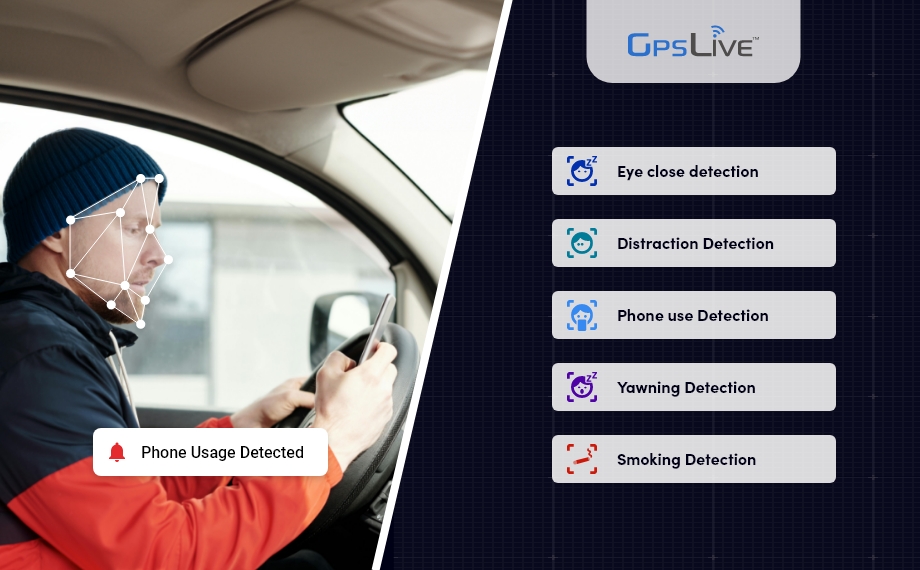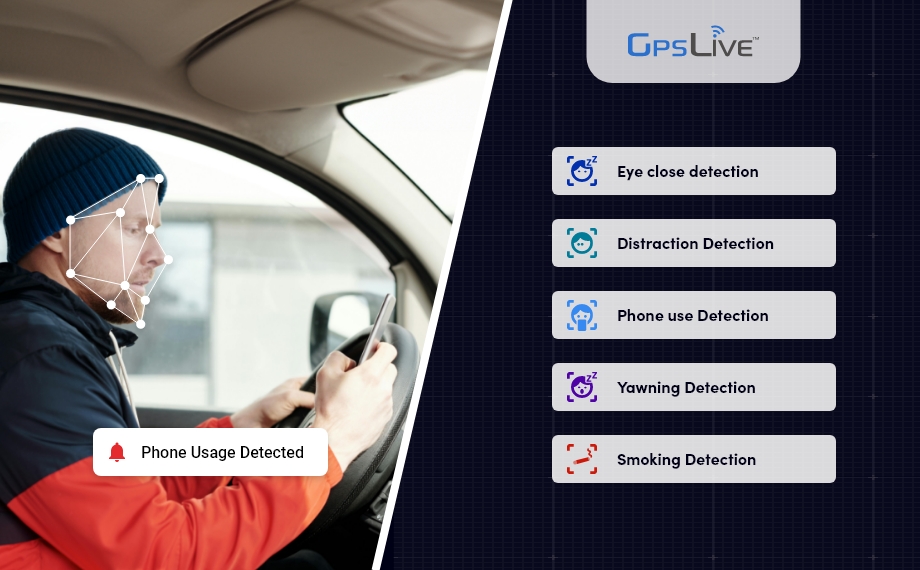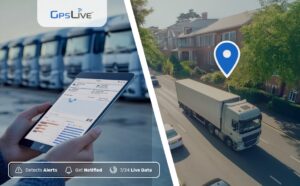Digital transformation has introduced new opportunities across industries to grow and scale business. This is especially true for the logistics and transportation industry, which underwent tremendous stress and changes during and after the Covid-19 pandemic. Fleet companies adopted digital solutions like fleet tracking and management solutions and embraced automation to tackle challenges associated with Industry 4.0.
Vehicle telematics ensures more efficient workflows and better performance across the board. From route optimization and driving behaviour to predictive maintenance and vehicle usage, telematics provides detailed information to fleet managers and ensures effective fleet management.
But one such device that is helping gain better visibility of the vehicle’s outside activity is a dash camera. A camera installed on your vehicle’s dashboard records everything on the road, and dual-facing offers recording video of the rear of the car and inside the vehicle’s cabin. So, fleet companies don’t have to install two separate dash cameras to know what’s happening inside the cabin and on the road.

The video footage is solid proof of evidence, settles discussions during accidents or frauds, and ensures the vehicle’s overall safety. And if vehicles are safe and running correctly, it is half the battle won for fleet managers.
In fact, the National Transportation Safety Board emphasises using dash cameras in commercial vehicles. Further, as fleet companies realise the importance of dashcams, the global dashboard camera market is expected to grow at a compound annual growth rate (CAGR) of 12.9% by 2028.
Let’s understand why fleet companies should install a dash camera.
Reliable Proof of Evidence
A dual-facing dash camera is a valuable tool that can help fleet companies to tackle or avoid complex situations, primarily accidents and collisions. Dash cameras can monitor both in-vehicle behaviour and external conditions. The video footage can help fleet managers determine what happened on the road during an accident.
For example, if distracted driving caused the accident, they can accordingly punish the driver, but if the other person took a sharp turn, they could clearly validate the person’s fault.
Dual-facing dashcam’s unbiased and precise documentation of an accident or other mishap can make things easier for fleet companies.
Driver Monitoring
While fleet tracking systems monitor and provide data on drivers’ driving behaviour in real-time, dashcams offer additional insights into such data. Since fleet managers can see what’s happening inside the cabin, they can get to know what drivers are doing while driving. Are they talking on the phone or drinking while driving? Are they involved in any unsolicited activities? It helps to keep a close check on their drivers.
However, many drivers are uncomfortable with fleet managers installing dash cameras as they feel it invades their privacy. Yet, they’ll ensure the best behaviour as drivers know they’re being watched. If drivers are not behaving or driving responsibly, fleet companies can engage them in additional training and bolster
improved driving habits.
Fraud and Theft Prevention
Thefts and frauds in the transportation industry are snowballing. Cargo theft costs a staggering £250 million annually in the UK. However, with the help of a dash camera, fleet companies can reduce the number of thefts. This is because dash camera footage gives unbiased data about what happened during the robbery.
Many dual-facing dash cams offer incident and impact detection, which is helpful when thieves try to break in or tamper with the vehicle. The dash camera alerts the fleet manager and drivers about an impact along with the video footage. Fleet managers can see the footage instantly through a live streaming option to assess the situation and immediately take necessary steps.
But, if thieves manage to run away, fleet managers can share the real-time location details and the video footage with police authorities and put thieves behind bars. Another benefit of a dash camera for fleet businesses is that if thieves know that the vehicle they’re planning to steal has a dash camera installed, they’ll avoid stealing as they can get caught.
Reduced Insurance Claims and Faster Processing
Modern and feature-driven dash cameras offer high video quality, providing clear video recordings that are very helpful when claiming insurance money. Deciding who or what caused the accident can be tedious during accidents and court trials. Dual-facing cameras quickly solve this problem as video footage can clearly show what happened on the road or inside the cabin, accelerating the entire process of insurance claims.
No need for any eye witness and collecting their statements; dash cameras have become a hassle-free and reliable way of providing evidence to insurance companies.
Further, fleet companies can enjoy reduced premiums as insurance companies provide discounts if they install a dash camera in their vehicles. An affordable device like a dash camera can help you save considerable money on insurance and premiums.
Wrapping Up
Generally speaking, dash cameras are easy to set up and cost-effective, saving thousands of dollars and valuable time in several circumstances. When fleet companies have all data points, they can have better visibility into all operations, enhance the efficiency of the business and increase the bottom line.


